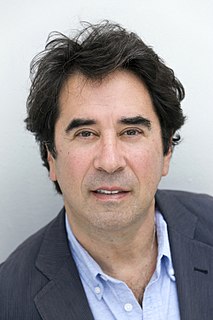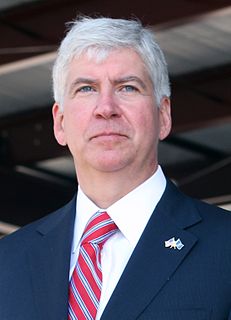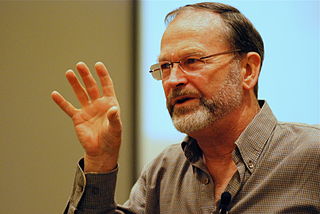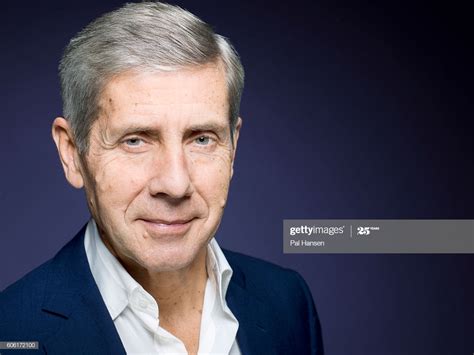Top 1200 Ecological Crisis Quotes & Sayings
Explore popular Ecological Crisis quotes.
Last updated on April 22, 2025.
The new paradigm may be called a holistic world view, seeing the world as an integrated whole rather than a dissociated collection of parts. It may also be called an ecological view, if the term "ecological" is used in a much broader and deeper sense than usual. Deep ecological awareness recognizes the fundamental interdependence of all phenomena and the fact that, as individuals and societies we are all embedded in (and ultimately dependent on) the cyclical process of nature.
The ecological crisis we face is so obvious that it becomes easy...to join the dots and see that everything is interconnected. This is the ecological thought. And the more we consider it, the more our world opens up." The ecological thought "...is a vast, sprawling mesh of interconnection without a definite center or edge. It is radical intimacy, coexistence with other beings, sentient and otherwise.
Women must see that there can be no liberation for them and no solution to the ecological crisis within a society whose fundamental model of relationships continues to be one of domination. They must unite the demands of the women's movement with those of the ecological movement to envision a radical reshaping of the basic socioeconomic relations and the underlying values of this [modern industrial] society.
Ecology's implications for capitalism are too momentous for the capitalist to contemplate. The plutocrats are more wedded to their wealth than to the Earth upon which they live, more concerned with the fate of their fortunes than with the fate of humanity. The present ecological crisis has been created by the few at the expense of the many.
I`d like to address the people of Flint. Your families face a crisis. A crisis you did not create and could not have prevented. I want to speak directly, honestly and sincerely to let you know we are praying for you, we are working hard for you, and we are absolutely committed to taking the right steps to effectively solve this crisis.
Throughout the world today there is a gowing awareness of the failings of the Western model of development and a corresponding desire to look for more human-scale, ecological ways of living. If Ladakh now succeeds in creating for itself a future which retains the foundations of its traditional past, it will be an inspiring example of how all the various elements of an ecological future fit together.
People look at the future and see a black hole. They look at climate change and see an ecological crisis. They look at their leaders corrupted by money and see a political crisis. They wonder if they'll ever be able to pay off their student loan or own a house. Given this ecological, political and financial crisis, what they want is a different future. Their fundamental demand is a different regime to provide that future.
We see a world of abundance, not limits. In the midst of a great deal of talk about reducing the human ecological footprint, we offer a different vision. What if humans designed products and systems that celebrate an abundance of human creativity, culture, and productivity? That are so intelligent and safe, our species leaves an ecological footprint to delight in, not lament?
Man will survive as a species for one reason: He can adapt to the destructive effects of our power-intoxicated technology and of our ungoverned population growth, to the dirt, pollution and noise of a New York or Tokyo. And that is the tragedy. It is not man the ecological crisis threatens to destroy but the quality of human life.
The current economic crisis...has numerous causes and sends a powerful message about the need for a profound revision of the model of global economic development. It's an acute symptom that is added to other more grave and already well-known ones, such as the continued imbalance between wealth and poverty, the scandal of hunger, the ecological emergency and the problem of unemployment, which has now become general. In this context a strategic re-launching of agriculture appears decisive.
The nuclear peril is usually seen in isolation from the threats to other forms of life and their ecosystems, but in fact it should be seen at the very center of the ecological crisis, as the cloud-covered Everest of which the more immediate, visible kinds of harm to the environment are the mere foothills.
Our present ecological crisis, the biggest single practical threat to our human existence in the middle to long term, has, religious people would say, a great deal to do with our failure to think of the world as existing in relation to the mystery of God, not just as a huge warehouse of stuff to be used for our convenience.
Given the scale of the ecological crisis we are facing this is the appropriate scale of expansion. Occupying the streets to bring about change as our ancestors have done before us. Only this kind of large-scale economic disruption can rapidly bring the government to the table to discuss our demands. We are prepared to risk it all for our futures.
If the ecological crisis, for example, is to be solved and if we are to promote genuine justice and thus bring real peace to the planet-and with it the possibility of improving lives on every level, not just economically, socially, and politically, but spiritually, psychologically, and intellectually-then, just on a practical level, we need to have all of the religions working together.
When my mother died, my father was in a crisis, my sister was in a crisis, everyone was in a crisis. I went round the night my mother was lying in the kitchen, and I organised everything, from the undertaker to the funeral... I looked after everybody, I sorted it all out and I've done so ever since.
Nor do piecemeal steps however well intended, even partially resolve problems that have reached a universal, global and catastrophic character. If anything, partial 'solutions' serve merely as cosmetics to conceal the deep seated nature of the ecological crisis. They thereby deflect public attention and theoretical insight from an adequate understanding of the depth and scope of the necessary changes.



















































